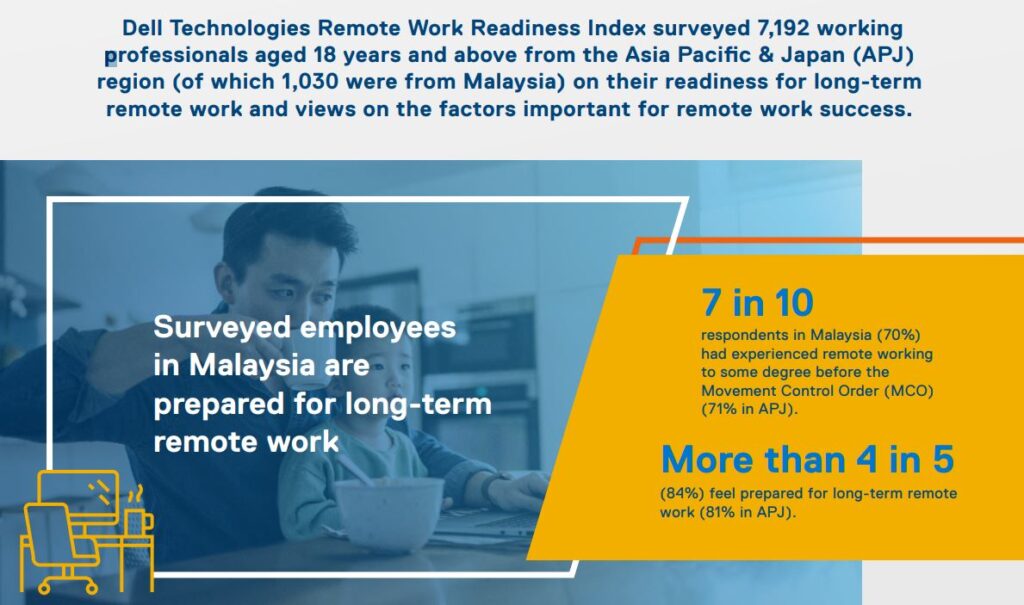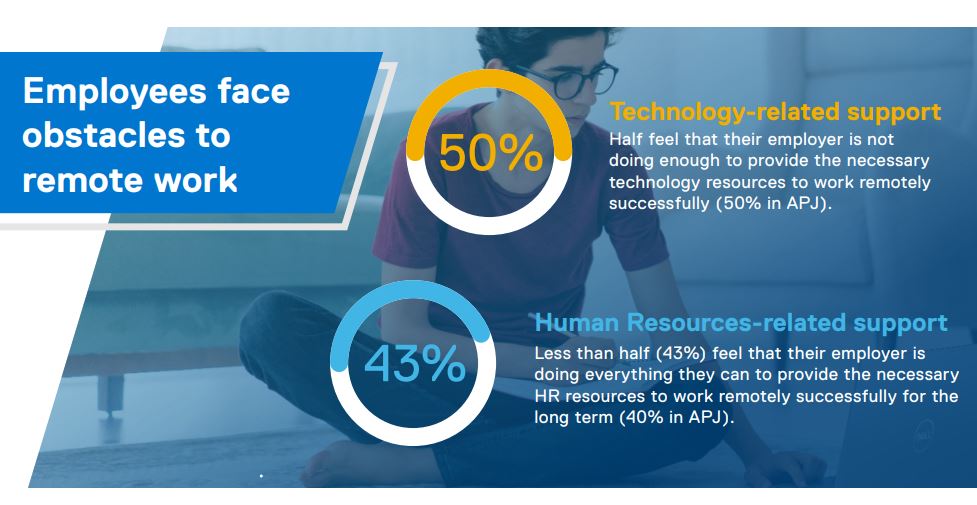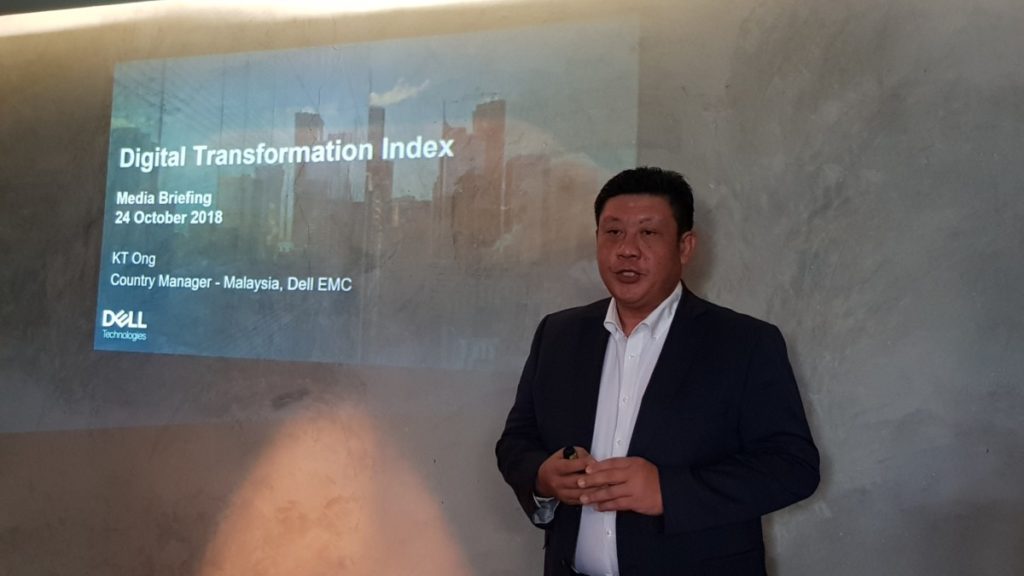
Dell Technologies Remote Work Readiness Index measures WFH readiness of Malaysians with 5 revealing findings
The ongoing pandemic has forced employees for many organisations to work from home for the long-term and from here on in, it’s uncharted territory as no other event in human history has prompted such a radical change in work habits. Dell Technologies has released their Remote Work Readiness Index and revealed several interesting findings.
The Dell Technologies Remote Work Readiness Index was conducted by global research firm Kantar last year in October 2020 and interviewed working professionals who have already been working from home for some time on their readiness for long-term remote work and what were the key factors to achieve success when working from home..

The study was conducted with a sample size of 7,192 working professionals, aged 18 years and above in 7 countries in the Asia Pacific (APJ( region that include Australia, India, Indonesia, Japan, Malaysia, SIngapore and South Korea. Of the entire total, 1030 respondents were from Malaysia.
Dell Technologies Remote Work Readiness Index – the Malaysia context
The findings of the Remote Work Readiness Index for Malaysia revealed that more than 8 in 10 (84%) of respondents in Malaysia felt prepared for long-term remote work but face ongoing productivity challenges.
Some of the key findings for Malaysia in comparison to the rest of the Asia Pacific region reveal that respondents had job security concerns from a lack of interaction with employers (33%; APJ: 28%), concerns about the stability of remote networks (33%; APJ: 27%)and also concerns about the blurring boundaries between work and personal lives in a long-term work from home scenario (31%; APJ: 34%).

Less than half of the surveyed respondents felt that their employers were fully supportive of their long-term remote work (43%; APJ: 46%) and half felt their employer wasn’t doing all in their power to support remote networking (50%; APJ: 50%). Only 43% (APJ: 40%) feel that their employer is doing everything they can to provide them with the HR support needed to successfully work remotely.

“The extraordinary events happening around the world meant that organisations have had to pivot to a remote work arrangement almost instantaneously, so it is not surprising that there are genuine concerns about long-term remote work,” said KT Ong, Country Manager – Malaysia, Dell Technologies. “The good news is that employees are prepared to work remotely for the long term and hope that their employers will provide greater support for the new reality where remote work practices will be commonplace.”

KT Ong, Country Manager – Malaysia, Dell Technologies
The biggest challenges in the study remain unstable remote networks which impact on the ability to access company resources and the need to use personal gear for work which in itself is also a security risk. The lack of in-person communication was also a concern in terms of HR support.
Some other key findings in the study were:
- Remote work is not new to employees in Malaysia. As many as 70% of Malaysia employees (APJ: 71%) had worked remotely to some degree before MCO measures were implemented. 91% (APJ: 84%) of Gen Z employees (aged 18 to 23 years old) had worked remotely before MCO.
- In Malaysia, the most important factor for remote working is having a stable remote network (48%). This factor is particularly critical to those in large organisations with more than 1,000 employees, where 54% see this as the number one factor.
- In APJ, the most important factors are the stability of one’s remote network (38%) and fixed working hours and personal time (38%).
- In Malaysia, instability of remote networks, including Internet bandwidth limitations, is the top technology obstacle across all age groups and organisational sizes – 61% of employees aged 55 and above (Baby Boomers) see it as a key challenge, while more than half (52%) of employees in large organisations with more than 1,000 employees share the same view.
- In APJ, the stability of remote networks is also the top technology challenge that employees face (31%).
- In Malaysia, the lack of or insufficient team engagement initiatives is especially felt by surveyed employees aged 55 and above (Baby Boomers), with half of them (50%) viewing it as the top HR challenge.
“The definition of work today has evolved. It is no longer anchored to a place or time, but instead is focused on outcomes,” added Ong. “Employers with the long-term health of the business in mind must be ready to help employees – the backbone of any company – realise both their professional and personal roles effectively regardless of where they will be working. This is work redefined.”
To read the study in detail, you can check out Dell Technologies official page at delltechnologies.com/en-my/remote-work/index.htm
